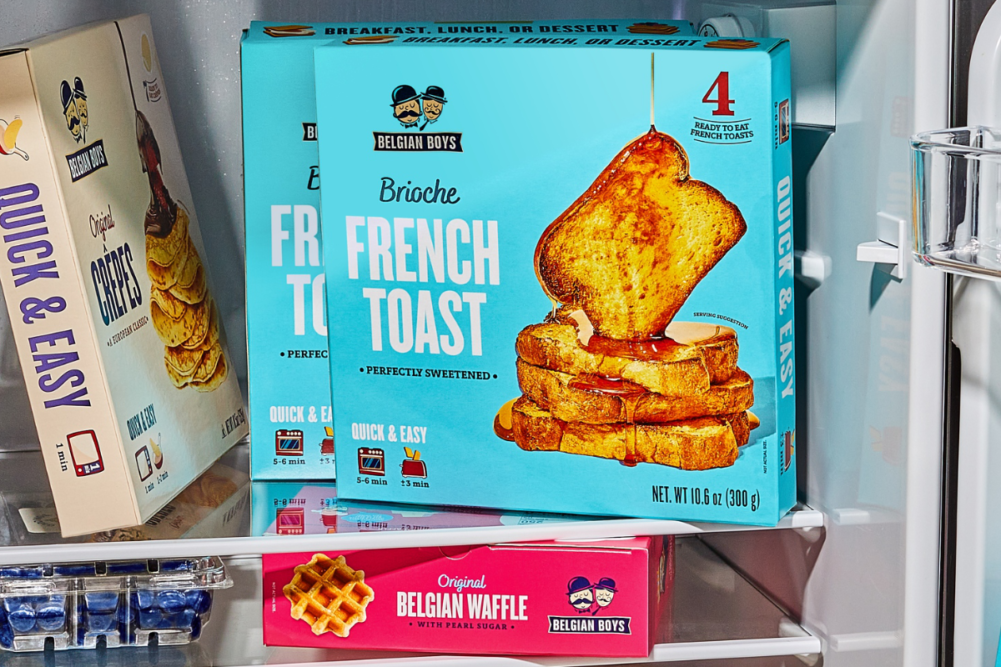CHICAGO — Traditional breakfast fare no longer serves current lifestyles, which increasingly value health, freshness and a mindful experience. It’s time for the industry to redefine breakfast to meet consumers’ evolving needs. While some have begun pushing long-static breakfast boundaries, there is room for growth and innovation. Brands need to reevaluate the category as an opportunity to explore international cuisines; bold, savory flavors; fresh ingredients — and beyond.
Breakfast foods have been migrating into other meal dayparts, from lunch and dessert to anytime snacks. At the same time, the pandemic has rewired the social consciousness around work-life balance, health and mental wellness. These shifts have prompted a reevaluation of the purpose of breakfast and a necessary reframing of the category from a rushed inconvenience to a more meaningful experience. Beyond “breaking the fast” with a caffeine-and-sugar jolt, consumers want to start their day with a nourishing morning ritual that sets them up for success. As Ashley Thompson, founder and chief executive officer of ready-to-eat oats brand Mush, points out, “If you win your morning, you win your day.”
Ms. Thompson participated in The Hatchery Chicago’s recent panel presentation, “Reimagining breakfast,” along with Anouck Gotlib, CEO of Belgian Boys, a maker of sweet snacks and frozen breakfast offerings; and Yuta Katsuyama, co-founder of Kororin, operator of a cloud kitchen restaurant that delivers Japanese onigiri in Chicago. These entrepreneurs are finding creative ways to redefine the morning meal and become part of a complete breakfast in a flexible, customizable way.
While “the onus is on the food and beverage industry to provide better options,” said Ms. Thompson, it’s equally important to leave room for choice. Mush’s health-conscious oatmeal is served in a compact 6-oz format that may be eaten on its own or paired with sides for a more substantial meal.
Part of the new breakfast experience is taking the time to enjoy it. Ms. Gotlib set out to do just that, by bringing consumers a taste of the joyful Sunday breakfasts of her childhood in Belgium. Belgian Boys’ ready-to-eat waffles, breakfast crepes and bite-size pancakes replicate a special-occasion meal — packaged in a convenient heat-and-eat format. The products are sold not in the frozen section but in the refrigerated aisle alongside other fresh morning staples, like milk, eggs and butter.
“Why make people walk across the store to buy frozen products for breakfast?” Ms. Gotlib said.
Beyond reimagining familiar favorites, there is an opportunity to push the frontiers of this newly defined breakfast space with diverse international cuisines, umami and spice. Still, lifelong eating habits can be hard to break. When Mr. Katsuyama launched his business selling Japanese rice balls two years ago, he began serving them for lunch and dinner. While the handheld onigiri are convenient and well-loved breakfast staples in Japan, the savory bite may be a leap for Americans used to having a sweet treat with their morning cup of joe. However, with time and education, Mr. Katsuyama hopes to continue bringing onigiri to breakfast tables and morning commutes across America.
The breakfast category is long overdue for a shakeup, and consumers are hungry for substantial, nutritious and savory foods to optimize their days. Entrepreneurs should seize this opportunity to experiment beyond the traditional boundaries of the morning meal. Building on unique flavor profiles and offering innovative, satiating and easily customizable foods will position brands for quick adoption and growth. As globally minded consumers expand their palates, breakfast has a real opportunity to reclaim its crown as the most important meal of the day.
Natalie Shmulik is the chief strategy and incubation officer of ICNC and The Hatchery Chicago.






